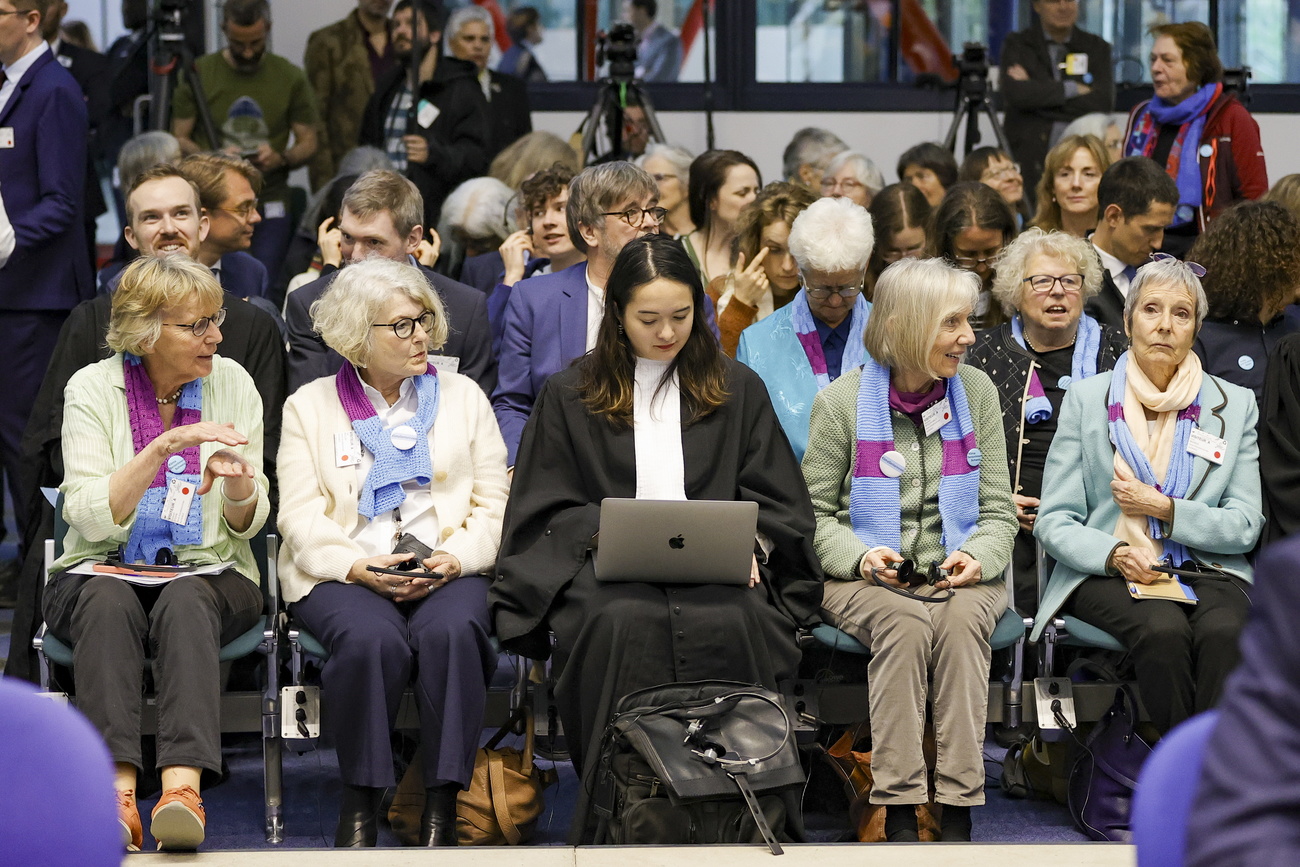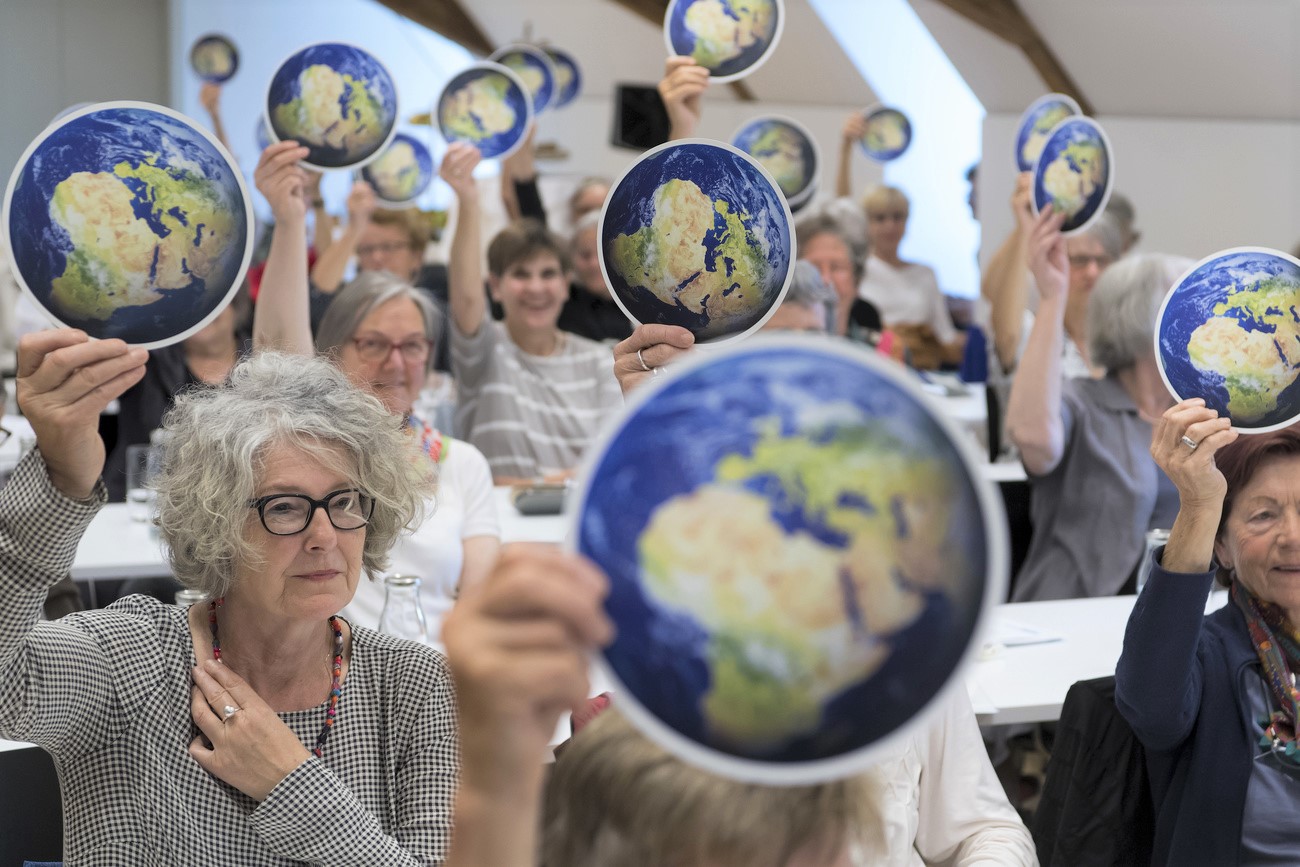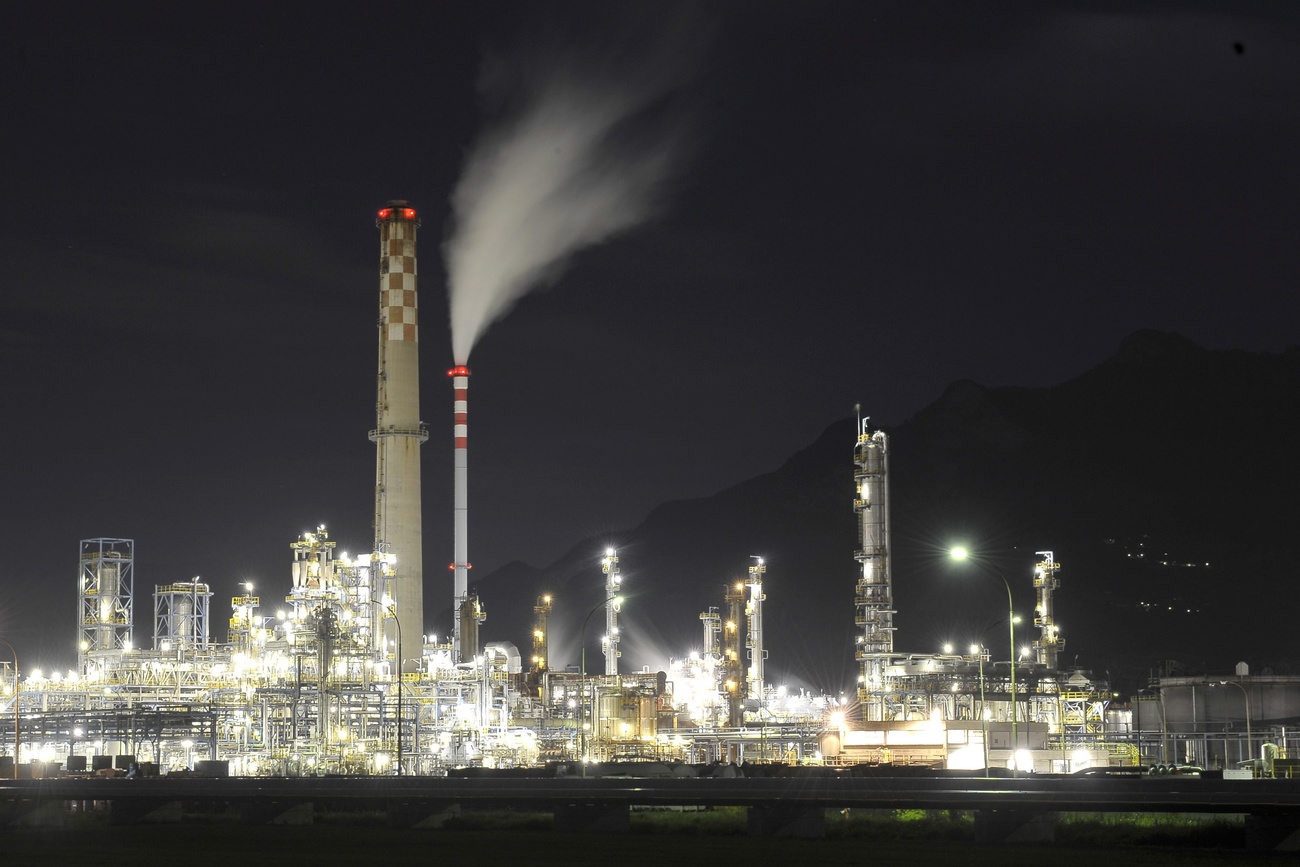The pensioners and babies behind a new era of climate lawsuits

Two-year-old Heewoo does not know it yet, but later this month he will become one of the most important plaintiffs in the rapidly emerging field of climate litigation.
South Korea’s Constitutional Court is expected to hear from April 23 a legal challenge to the country’s progress on climate goals which has been brought on behalf of 62 babies and small children.

The so-called baby climate case, launched by parents and expectant mothers in 2022, was filed under the name Woodpecker, the nickname given to Heewoo at the time when he was still a foetus and the youngest member of the group.
The South Korean hearing comes after Europe’s top human rights court ruled in favour this week of more than 2,000 women aged 64 and over when it said that the Swiss government’s failure to cut carbon emissions was a violation of citizens’ rights.

More
Landmark ruling: Switzerland’s climate policy violates human rights
The judgment was handed down just days after the publication of another landmark verdict by India’s Supreme Court, which established that a clean and healthy environment was a fundamental right.
The Indian decision favoured wind and solar power producers who argued there was a constitutional obligation to cut emissions, but was a blow for the ostrich-like bustard bird, whose habitat is being damaged by power lines.
For activists, these cases set a powerful precedent because they represent the first time that key courts around the world are recognising that governments have legally binding climate obligations.
“There’s a critical mass of victories,” says Adam Weiss, programme director for Europe at ClientEarth, the prominent climate litigation group.
The “moral force” of these precedent-setting decisions by top courts could boost the chances of success for a new wave of legal action expected elsewhere this year, Weiss says.
The European Court of Human Rights ruling said that the Klimaseniorinnen association of Swiss retirees had their right to “respect for private and family life” violated by Bern’s failure to protect them from the impact of heatwaves caused by climate change.
“I was preparing myself for no, no, no, but we got the yes, yes, yes,” says Elisabeth Stern, 76, one of the Swiss women vindicated in court. “That was unbelievably thrilling.”

More
Is the climate crisis a threat to human rights?
Legal experts say it is the first time any international court has deemed that nation states have obligations to their citizens in the context of climate change. It is also one of the first explicit court references to unborn babies and young people, calling on European states to cut emissions swiftly “to avoid a disproportionate burden on future generations”.
“It leaves no doubt that the climate crisis is a human rights crisis,” says Joie Chowdhury, senior attorney at the Center for International Environmental Law.
Three other international courts – the International Court of Justice, the International Tribunal for the Law of the Sea and the Inter-American Court of Human Rights – are deliberating similar cases this year.
The South Korean litigants, who claim the government’s emissions plans do not do enough to protect citizens from climate change, are taking inspiration from the success of the Swiss case.
Heewoo’s mother, Donghyun Lee, 41, worries most about her eight-year-old daughter, Jia, who is banned from playing outside during heatwaves most summers, and about her elderly parents, potato farmers in the south of the country, whose crops have been affected by an unusually extreme cold snap this year.
“The elderly and children are more vulnerable to the impacts of climate change and disaster, so it is important they file lawsuits first,” she says. “The win from other countries could serve as an opportunity for our government to support us.”
The flurry of climate litigation raises three important questions. Will they really open the way to an avalanche of litigation that might be successful? Will verdicts such as the ECHR decision have a decisive impact on the behaviour of governments or companies?
And is the growing use of climate litigation a reflection of just how hard it has become, especially in a more populist era, to push through genuine political change?
“The sole reason for all this litigation is that politicians are not doing their jobs,” says Dennis van Berkel, co-founder of the Climate Litigation Network. “Courts need to step in to say, ‘This is what you promised, this is your job and you have to follow it through.’”
Legal delays
The inspiration for the Swiss case, and two other cases that the European court ruled on this week, was a Dutch court victory for climate litigators that dates back to 2019.
The Urgenda Foundation, an NGO, successfully took the Dutch government to court to compel it to reduce greenhouse gas emissions by 25% compared to 1990 levels by 2020.
Since 2019 that outcome has inspired more than 100 others around the world, including the South Korean baby case, says Gerry Liston, a lawyer for one of three cases the ECHR heard this week.
He says one of the principles raised in the Swiss ruling is the idea that emissions related to imported goods must be taken into account in a country’s overall carbon budgets. That opens the possibility that governments would have to introduce legislation compelling big companies to cut emissions throughout their supply chains.

More
‘Absurd’ European climate ruling could harm democracy, say Swiss press
“That is where we and many others in the climate litigation community will be looking to exploit,” Liston says. (The case he was involved in, brought by Portuguese teenagers, was dismissed on the grounds that legal remedies in national courts had not been exhausted.)
Despite these successes, it can take years to build a successful case – the Swiss case, for instance, was first filed eight years ago.
And even when the litigants win, the real-world impact is often unclear.
In 2021, a court in The Hague ordered Shell to significantly cut its emissions by 2030 – another case considered momentous at the time and which inspired similar, ongoing cases against French energy company TotalEnergies and Swiss cement producer Holcim.
But the original verdict is under appeal, with Shell seeking to convince judges to repeal the order in hearings that ended on Friday. While that litigation has been continuing, Shell recently announced that it had weakened some of its climate targets, including around some of its goals for reducing emissions by 2030.
“The legal system was certainly not designed with the climate emergency in mind,” says ClientEarth’s Weiss, contrasting the length of time that lawsuits take with what activists see as the need for urgent action.
In one example of hold-ups, a case brought by Belgian asthma sufferers against regional authorities for failing to tighten air quality laws, also backed by ClientEarth, has been delayed for 20 months as judges consider whether arguments should be made in French or Flemish.
Even tailor-made laws meant to create clear corporate legal liability for environmental, social and climate harms are no guarantee of success.
A flurry of climate, human rights and environmental cases against multinationals including the energy and utility companies TotalEnergies, EDF and Suez, were filed under an innovative French “duty of vigilance” law passed in 2017.
These had all ground to a near-halt after being filed in recent years amid lengthy debates about whether they could be admitted into the court system. France’s appeals court took the unusual step of creating a specialised climate chamber at the start of the year to hear these cases.
‘Not a very democratic route’
Even some successful litigants recognise that taking climate cases to court is not the ideal solution.
It is “not a very democratic route” to achieve climate action, says Stern, one of the Swiss litigants, who says she found herself dizzy and short of breath in Switzerland’s summer heat last year. And then there is the cost: “It is just too expensive.”
The problem, say many activists, is that elected lawmakers are not moving fast enough. According to a report by the UN Environment Programme, the world was on track for a temperature rise of up to 2.9°C above pre-industrial levels, it found, even assuming countries stuck to their Paris Agreement climate pledges.
Indeed, there is a growing backlash in a number of European countries to some of the measures that have been already introduced as consumers start to feel the impact.
“People go to court when other systems break down or fail . . . and governments are just not doing enough,” says Michael Burger, executive director of the University of Columbia’s Sabin Center for Climate Change Law. “But [litigation] doesn’t move in just one direction. It’s not just victories.”
Lawyers and other experts point out that climate cases primarily draw on recommendations made by groups of international scientists.
This poses an ethical dilemma for judges, who are trained to work within the boundaries of hard law, says Noëlle Lenoir, a constitutional law expert who has worked at France’s highest administrative court.
“It completely changes the paradigm of the court [system],” she believes, and in the process creates a potential “democratic problem”. “Should it be down to a judge to stand in for the law on the basis of worthy [climate] goals, and convict a company or a state, even when the country’s parliamentary majority has not done so?”

More
Swiss CO2 law defeated at the ballot box
Shell’s lawyers highlighted in the appeal last week that the Dutch parliament had in recent years rejected proposals to write emission cuts for companies into law.
Large energy companies can also use the courts. Analysts expect that the US’s top environmental regulator will face fresh legal challenges from fossil fuel groups after it unveiled this week new measures to reduce pollution.
Shell is suing Greenpeace for $2.1 million (CHF1.9 million) after activists occupied one of its oil and gas assets at sea, in one of the largest ever claims against the environmental group.
Frans van der Werf represents a Dutch non-profit that has been involved in Shell’s defence as a third party to the case, arguing that the original ruling will push up energy prices for consumers. He believes the company should be more aggressive in making its case, taking a “street fighter” approach.
Companies cannot afford to give in to tough tactics by activists, says der Werf, “because if you give one finger, you lose not only your hand, you lose your arms, your hands, everything”.
Copyright The Financial Times Limited 2024
More

In compliance with the JTI standards
More: SWI swissinfo.ch certified by the Journalism Trust Initiative

You can find an overview of ongoing debates with our journalists here. Please join us!
If you want to start a conversation about a topic raised in this article or want to report factual errors, email us at english@swissinfo.ch.